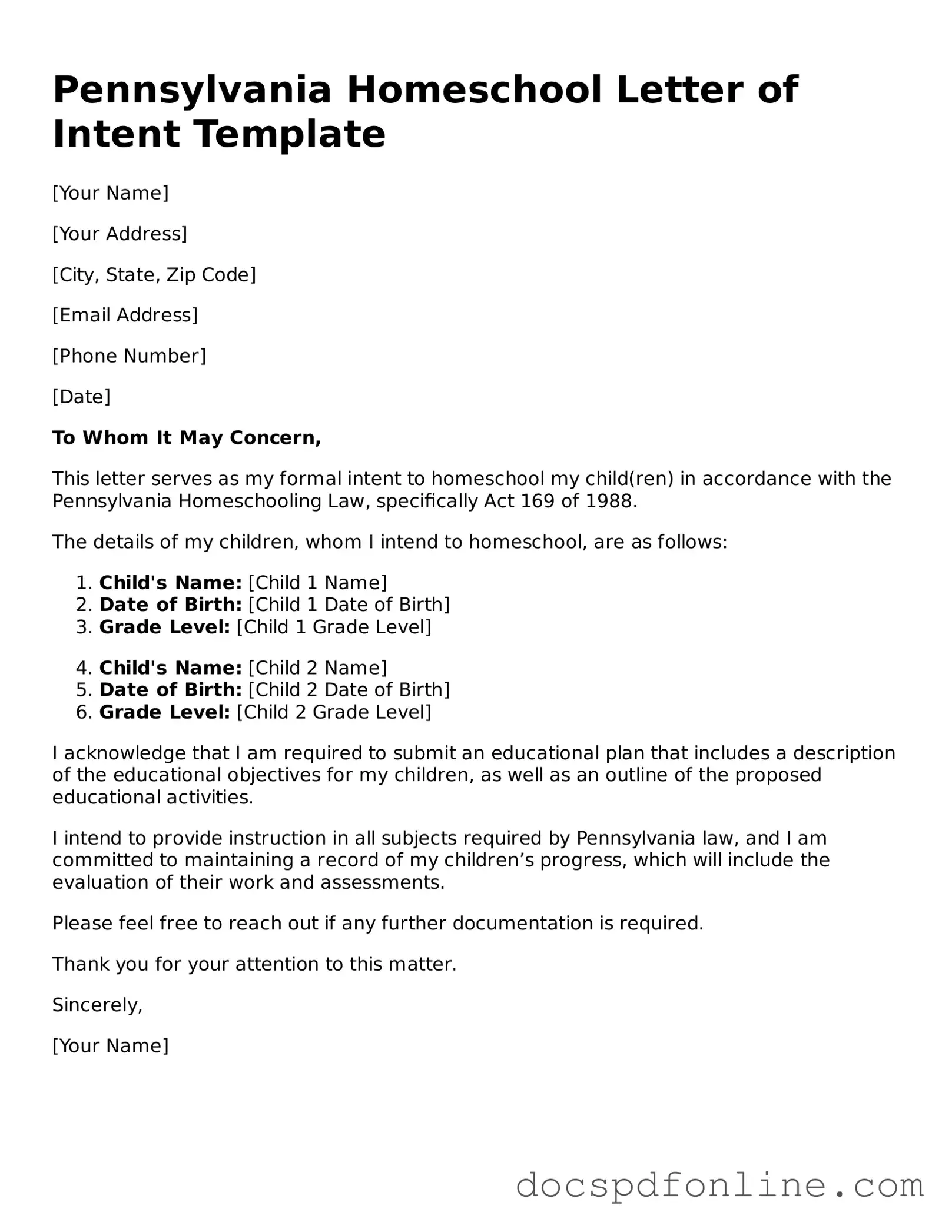Legal Homeschool Letter of Intent Template for Pennsylvania
The Pennsylvania Homeschool Letter of Intent form is a crucial document that parents must submit to officially notify their school district of their intention to homeschool their children. This form outlines basic information about the student and the educational plan, ensuring compliance with state regulations. Understanding how to properly complete and submit this form is essential for a smooth homeschooling experience.
Launch Editor Now

Legal Homeschool Letter of Intent Template for Pennsylvania
Launch Editor Now
Save time — finish this form fast
Finish Homeschool Letter of Intent online — edit, save, download made easy.
Launch Editor Now
or
↓ PDF File
